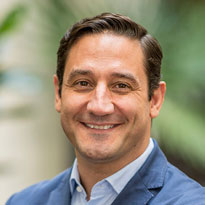Digital Marketing & Customer Experience. Leading Commercial Transformation: Aligning Marketing Strategy to Sales
In today’s rapidly evolving business environment, successful companies must navigate the complexities of balancing tradition with innovation while adapting to changing customer expectations. This course explores the critical elements of commercial transformation, focusing on how organizations can integrate digital and physical strategies to remain competitive in customer-centric markets. Participants will delve into omnichannel integration, data-driven personalization, digital marketplaces, and the evolution of sales systems. Through practical frameworks and real-world examples, the course highlights the importance of aligning strategy, organization, and execution to achieve sustainable growth. Key topics include leveraging technology responsibly, optimizing customer journeys, redefining value propositions, and adapting sales systems to evolving business strategies. This program equips participants with actionable insights to drive transformation and deliver measurable results.

Benefits
1
Understand the landscape of SalesTech, MarTech AI tools—and how each category contributes to building a more effective, data-driven, and –in most cases– human-centered sales system.
2
Gain clarity on how to redesign your sales process around the customer journey, identifying where technology can simplify, support, or amplify key activities.
3
Learn how to adapt your commercial organization and operating model—structure, roles, incentives, and coordination—to support a more agile and digital sales system.
4
Develop the mindset and tools to lead a commercial transformation with focus and realism, building a roadmap that fits your company’s context and capabilities.
Program Details
NEXT EDITION
Madrid
June 15-17, 2026
CONTACT US
M. Jesús Biechy | Program Director
(+34) 91 211 30 50
MBiechy@iese.edu
Technological infrastructure as the Engine of Commercial Transformation
New technologies are changing the way companies connect with customers, organize their sales efforts, and go to market. In this module, we’ll take a closer look at the SalesTech and MarTech tools that are reshaping commercial activity—what they do, how they’re being used, and what kind of impact they can really have. We’ll explore a practical taxonomy of solutions, from CRM platforms and sales engagement tools to marketing automation systems, customer data platforms (CDPs), analytics, and decisioning tools. Special attention will be given to the growing role of AI—both generative and predictive—and how it’s being applied to personalization at scale, prioritize leads, automate repetitive tasks, and even assist in real-time interactions.
Redesigning Sales Processes and the Omnichannel model
There’s no one-size-fits-all sales process—especially in B2B, where the way companies sell often reflects years of decisions, habits, and adaptations to different customers, markets, and structures. This module is about helping each participant take a fresh look at how their own commercial process really works. Through a mix of frameworks, case discussions, and a hands-on workshop, we’ll work on how to design or improve the sales process based on what the customer needs, and how their buying journey unfolds. We’ll explore how to align sales activities with that journey, how to avoid redundancy and friction, and how to decide where technology can support, simplify, or add value. We’ll also look at what being omnichannel really means—how to combine human and digital touchpoints in a way that’s coherent, efficient, and genuinely helpful for the customer.
Rethinking the Commercial Organization and the Sales Operating Model
When companies try to modernize how they sell, they often realize that the real bottleneck is not the strategy or the technology—it’s how the sales and marketing teams are organized and managed. In this module, we’ll open up the key questions behind the commercial organization: What roles do we really need? How should teams be structured and deployed? Are responsibilities clear, and are the different functions working in sync? We’ll also look at the basics of the sales operating model: how goals are set, how people are hired and developed, how performance is tracked and rewarded, and how the day-to-day work of selling is actually organized. The module offers a framework to understand what might need to change in each company’s setup, and how to start shaping a structure and a model that better supports today’s commercial reality.
Leading Change and Building a Transformation Roadmap
Most commercial transformations don’t fail because the strategy was wrong, or the tools were missing—they fail because the change wasn’t well led. In this final module, we’ll discuss how to approach commercial change in a realistic way, knowing that change is difficult, that resistance is normal, and that momentum can fade quickly. We’ll look at what a solid transformation roadmap should include, how to set priorities, who needs to be involved, and what common mistakes to avoid. The goal isn’t to follow a fixed recipe, but to understand the key levers that make change possible—and to help each participant think through what a credible next step might look like in their own context.
This program is designed for senior leaders responsible for driving commercial growth and transformation. It is especially relevant for CEOs, Chief Commercial Officers, VPs of Sales, Business Unit Heads, and other executives involved in sales strategy, go-to-market models, or organizational change. While the program is not limited to B2B contexts, most of the cases and examples discussed will come from B2B companies.

Professor of Marketing
• Ph.D. in Management (Marketing), University of California, Los Angeles
• Master in Business Administration, IESE, University of Navarra
• Bachelor’s degree in Business Administration, Universidad Complutense de Madrid

Professor of the Practice of Management of Marketing
• MBA, IESE Business School
• Graduated in Economics, UAM, University of Madrid
The program combines case discussions, faculty-led sessions, and hands-on workshops. Participants will work with real examples of commercial transformation across industries and engage in structured exercises to reflect on their own company’s challenges. Peer learning plays an important role: participants will share experiences, test ideas, and gain perspective from others facing similar decisions. The approach is practical and interactive, with a clear focus on helping leaders apply what they learn to their own context.
The admission process has three steps:
- Complete and submit the online application.
- The Executive Education Department will contact you by email to acknowledge receipt of the application. It will also provide information about the program dates, sending of prior study materials and the bank details needed to pay tuition.
- Tuition fees must be paid before the start of the course and before the study materials are sent. This is an essential condition for participation in the program.
- Two weeks before the start of the program, you will receive an email with a username that will give you access to the IESE Virtual Campus, where the first study materials will be available.
Fees
- General fee: € 4,500
- Alumni fee: €4,050
- IESE Alumni Assn. members: €3,825 IESE Executive Education Certificate
If interested in obtaining the IESE Executive Education Certificate:
• Complete, at least, 4 Focused Programs, in English or Spanish, within three years.
In addition to earning the IESE Executive Education Certificate, you will enjoy a series of other exclusive benefits:
• Professional guidance with an IESE adviser.
• 5% discount on any future Focused Program.
• Possibility of becoming a Member of the IESE Alumni Association, which delivers a broad array of exclusive benefits. Discover here how to make the most of the membership.
Madrid: Exe Moncloa 4*, Aravaca Village Park 4*, Meliá Madrid Princesa 5*, NH Madrid Chamberí 3*, NH Zurbano 4*.
Executive Education Rankings.





